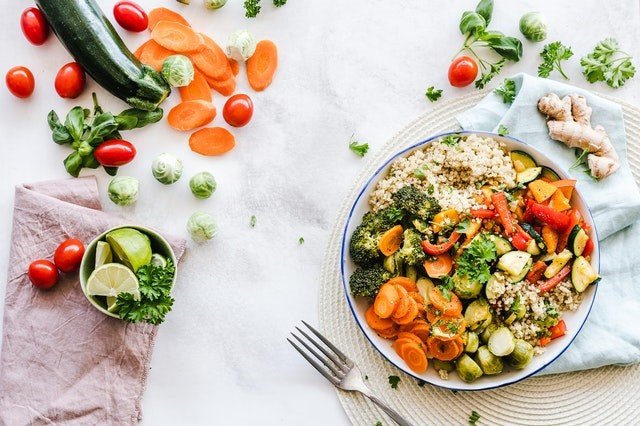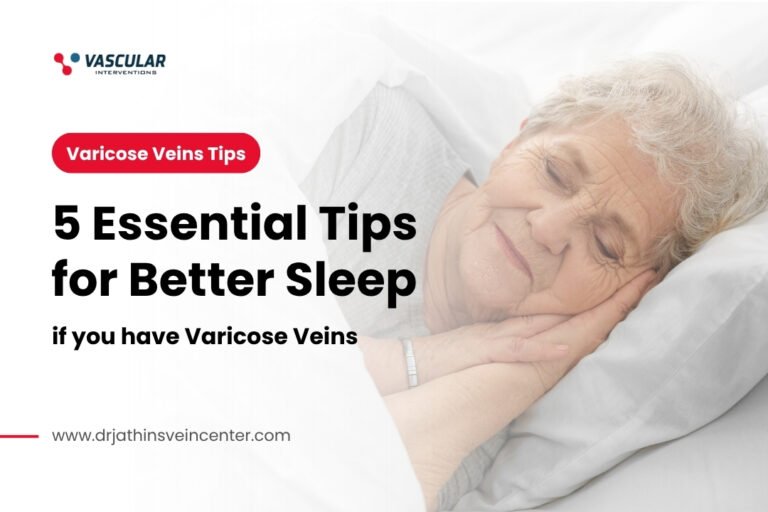What are Varicose Veins and the Connection with Your Diet?
Varicose veins are very common, especially among women. They are usually caused by the valves in the veins that will not function correctly and cause the blood to pool and clot in the veins. This is because of genetics, being overweight, being pregnant, standing for long periods of time, wearing high-heeled shoes or other factors.
Have you ever thought about what your diet might be doing to your varicose veins? Most people don’t think about the connection, but there are certain foods that may be increasing the risk of varicose veins.

– Processed foods typically contain high levels of sodium, which has been shown to increase blood pressure and the risk of swelling in the legs. This can lead to varicose veins.
– High sugar diets are linked to obesity, which can lead to varicose veins. Obesity is a risk factor for developing varicose veins which are more likely to occur when you eat too much food that is high in sugar. Sugar has been shown to cause inflammation in the body which leads to varicose veins.
– Drinking alcohol excessively can be very dangerous for your health. One of the various risks that people who drink too much are at risk for is varicose veins. Drinking alcohol dehydrates your body, which can lead to varicose veins.
How Eating a Healthy Diet Can Help Prevent Varicose Vein Problems
A varicose vein is a large, swollen vein that has become twisted and enlarged, and can occur in a number of different parts of the body. Most notably, they can occur in the legs, chest, or abdomen. Varicose veins are like a red carpet for bacteria and germs to enter the body, potentially leading to dangerous health complications. The symptoms of varicose veins include burning, itching or tingling sensations, heat, and swelling.
Varicose veins are a condition where the valves in large blood vessels in the leg become clogged and allow blood to pool. This is caused by prolonged standing or sitting, pregnancy, obesity, and certain medical procedures. Varicose veins can be painful and embarrassing.
How many of us have heard that a healthy diet can help prevent varicose veins from worsening? And that a diet rich in vitamins and minerals can help to prevent future health problems such as liver disease, kidney disease, and overall a healthier life? It is important to understand that many people are not aware of the risks they are taking each day because they do not know about the importance of a healthy diet.
Foods high in salt, fat, processed foods, and sugar can lead to varicose veins. If you want to prevent these unsightly veins from popping up, avoid salty foods, fatty foods, processed foods, and sugary drinks.
How to Choose Which Type of Diet is Right For You!

Varicose veins are a sign of unhealthy circulation. This can be caused by an increase in blood volume or because the valves don’t work as well as they should. Whatever the cause, there is a high chance that your diet may be playing a role in your condition.
There are many different types of diets out there and it may be hard to know which one will work best for you! Below are some guidelines to help you make an educated decision about what type of diet will work best for you!
There are many different types of diets for preventing varicose veins. Some people recommend a vegan diet, while others think following a Mediterranean diet is best.
What type of diet you should follow depends on the severity and location of your varicose vein problem. For example, if you have mild or moderate varicose veins then a healthy low-fat diet is considered to be the best treatment option.
Eat Healthy To Reduce The Risk of Varicoceles
Varicose veins are generally caused by an injury to the vein, certain medical conditions, or by pregnancy. Varicose veins are caused due to an increase in blood flow that causes the vein to swell. These veins are not harmful, but they can be uncomfortable and embarrassing. There are many ways to treat varicose veins including anti-inflammatory drugs, compression stockings, surgery, and laser therapy.
The best way to prevent varicose veins is to eat healthily. Consuming food high in fiber will help maintain healthy blood circulation. Foods rich in iron, zinc, potassium, and vitamins C & E are also important for keeping your veins healthy.
Varicose veins are a common condition that can develop due to lifestyle factors such as age, pregnancy, or family history. The condition affects the legs and causes swelling and aching. A diet for varicose veins includes vegetables and fruits, dairy products, whole grain products, and low-fat protein-rich foods like beans and lean meats. Foods like coffee, tea, alcohol, and fatty foods should be avoided as they can make varicose vein symptoms worse.




